





Maksikold
Application instruction:
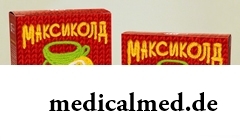 Maksikold – drug for a symptomatic treatment of acute respiratory diseases.
Maksikold – drug for a symptomatic treatment of acute respiratory diseases.
Form of release and structure
- Tablets, film coated: oval, from two parties convex, pinkish-orange color, from risky; on cross section of pinkish-orange color with orange and white impregnations (on 2, 10 or 12 pieces in strip planimetric packagings, in a cardboard pack 1 or 2 packagings);
- Powder for preparation of solution for intake: crystal, light yellow or pink (existence of white crystals and easily breaking up lumps is possible), with a specific smell; ready solution – opalescent, light yellow color with a characteristic smell of orange or a lemon or pink color with a characteristic smell of raspberry (on 5 g in the bags made of the combined material in a pack of cardboard 5, 10 or 50 bags).
Active ingredients in 1 tablet:
- Paracetamol – 500 mg;
- Ascorbic acid – 30 mg;
- Phenylephrinum a hydrochloride – 10 mg.
Active ingredients in 1 bag of powder:
- Paracetamol – 750 mg;
- Ascorbic acid – 60 mg;
- Phenylephrinum a hydrochloride – 10 mg.
Additional inactive components of tablets:
- Structure of a kernel: magnesium silicate, hypro rod (hydroxypropyl cellulose), talc, calcium hydrophosphate, croscarmellose sodium, ethyl cellulose, dye sunset yellow;
- Structure of a cover: titanium dioxide, talc, hypro rod, gipromelloza, dye sunset yellow.
Powder excipients: potato starch, citric acid, lactose, sodium saccharin, silicon dioxide colloid, sodium citrate, fragrance, dye quinolinic yellow (powder with taste of orange and a lemon) or dye acid red (powder with taste of raspberry).
Indications to use
Maksikold – drug for symptomatic therapy of the infectious and inflammatory diseases (including flu and acute respiratory viral infections) which are followed by a fever, the increased body temperature, a nose congestion, nose bosom, throat, muscles and bones pain, a headache.
Contraindications
Absolute:
- Hyperthyroidism (including a thyrotoxicosis);
- Arterial hypertension;
- Heart diseases (tachyarrhythmias, an acute myocardial infarction, the expressed stenosis of the mouth of an aorta);
- Closed-angle glaucoma;
- Prostate hyperplasia;
- The expressed renal/liver failure;
- Alcoholism;
- Children's age up to 9 years (or body weight is less than 30 kg) – for tablets, up to 12 years – for powder;
- Simultaneous use of other drugs containing paracetamol;
- Concomitant use of monoamine oxidase inhibitors (and also 14 days after their cancellation), beta adrenoblockers, tricyclic antidepressants;
- Hypersensitivity to drug components.
Relative:
- High-quality hyperbilirubinemias;
- Deficit glyukozo-6-fosfatdegidrogenazy;
- Pregnancy;
- Lactation;
- Advanced age.
Route of administration and dosage
Tablets, film coated
Maksikold it is necessary to accept inside, swallowing of tablets entirely and washing down with water, to food or in 1-2 hours after meal.
The recommended doses:
- Adults and teenagers are more senior than 12 years (with body weight more than 40 kg): on 1-2 tablets each 4-6 hours, but no more than 4 times a day;
- Children of 9-12 years (with the body weight of 30-40 kg): on 1 tablet each 4-6 hours, but no more than 4 times a day.
Powder for preparation of solution for intake
Drug is accepted inside. For this purpose it is necessary to pour out contents of 1 package in a cup, to fill in with hot water and to stir before full dissolution of powder. To accept hot.
The recommended doses:
- Adults: on 1 package each 4-6 hours, but no more than 4 times a day;
- Teenagers are more senior than 12 years: on 1 package each 6 hours, but no more than 3 times a day.
Regardless of the appointed dosage form Maksikolda should not exceed duration of treatment 3 days if drug is used as an antipyretic, and 5 days – as anesthetic. Need of more prolonged treatment is defined individually by the doctor.
Side effects
- Allergic reactions: rash, urticaria, dermahemia, Quincke's disease;
- The side effects caused by paracetamol: hemopoiesis disturbances (methemoglobinemia, thrombocytopenia, anemia);
- The side effects caused by Phenylephrinum: an asthma, irritability, bradycardia, heartbeat, stenocardia, tachycardia, motive concern, increase or decrease in the ABP, ventricular arrhythmia (especially at reception of high doses), a headache, nausea or vomiting, allergic reactions;
- The side effects caused by ascorbic acid: irritation of a mucous membrane of digestive tract, thrombocytosis, erythropenia, hypopotassemia, neutrophylic leukocytosis, glucosuria, oppression of function of the insulyarny device of a pancreas; at long reception of high doses – diarrhea, an ultseration of a mucous membrane of digestive tract, nausea, vomiting, hyperacid gastritis, decrease in permeability of capillaries (increase in arterial pressure, deterioration in a trophicity of fabrics, mikroangiopatiya, hypercoagulation).
At prolonged use of Maksikold the risk of increase in excitability of the central nervous system, emergence of a headache and sleeplessness, development of renal failures increases in the doses considerably exceeding recommended (are shown by the hyperoxaluria moderated by a pollakiuria, damage of the glomerular device of kidneys, a nephrolithiasis).
Special instructions
Before Maksikold's reception should consult with the doctor patients who accept Colestyraminum, домперидон or Metoclopramidum (as change of speed of absorption of paracetamol is possible), or anticoagulants (since their effect increases).
It must be kept in mind that during treatment drug distorts results of laboratory tests on definition of concentration of uric acid and glucose in a blood plasma.
At prolonged treatment (more than 5-7 days) it is necessary to control function of a liver and a condition of peripheral blood.
During Maksikold's reception it is necessary to refrain from alcohol intake since the risk of toxic damage of a liver increases.
Negative impact on the speed of reactions and ability to concentration drug does not pay attention.
Medicinal interaction
Paracetamol:
- In high doses strengthens effect of anticoagulants;
- Reduces efficiency of uricosuric and diuretic drugs.
Ascorbic Acid (AA):
- Reduces efficiency of indirect anticoagulants, heparin and antipsychotic drugs (neuroleptics) which are derivatives of a fenotiazin;
- Increases the general clearance of ethanol reducing concentration of joint stock company;
- Reduces a canalicular reabsorption of tricyclic antidepressants and amphetamine;
- Improves absorption of iron preparations in intestines;
- Reduces concentration in blood of oral contraceptives;
- Slows down removal by kidneys of acids;
- Reduces chronotropic action of an izoprenalin;
- Strengthens removal of the means having alkali reaction (including alkaloids);
- Increases risk of development of a crystalluria at treatment by streptocides of short action or salicylates;
- Increases concentration in blood of tetracyclines and benzylpenicillin;
- In high doses increases removal of a meksiletin kidneys;
- At prolonged use or reception in high doses can interfere with interaction of Disulfiramum with ethanol.
Phenylephrinum:
- Reduces anti-anginal effect of nitrates;
- Reduces hypotensive effect of diuretics and anti-hypertensive means (including a mekamilamina, Methyldopums, a guanetidina, a guanadrela).
Possible reactions of interaction in case of simultaneous use of Maksikold with other medicines:
- Monoamine oxidase inhibitors, sedatives, ethanol: their effects amplify;
- Ethanol, hepatotoxic drugs, inductors of enzymes of a microsomal oxidation in a liver (for example, barbiturates, phenylbutazone, rifampicin, tricyclic antidepressants, Phenytoinum): the risk of development of a hepatotoxic action of paracetamol increases;
- The barbiturates accepted for a long time: efficiency of paracetamol decreases;
- Metoclopramidum, домперидон: paracetamol absorption speed increases;
- Colestyraminum: paracetamol absorption speed decreases;
- Inhibitors of enzymes of a microsomal oxidation (for example, Cimetidinum): the risk of a hepatotoxic action of paracetamol decreases;
- Ethanol: the probability of development of acute pancreatitis increases;
- Salicylates (at reception of high doses of paracetamol): the risk of development of cancer of bladder or kidney increases;
- Diflunisal: plasma concentration of paracetamol and risk of development of a hepatotoxic increases;
- Miyelotoksichny means: manifestations of a gematotoksichnost of paracetamol amplify;
- Monoamine oxidase inhibitors (including селегилин, Procarbazinum, furasolidone), tricyclic antidepressants, ergot alkaloids, adrenostimulyator, methylphenidate, oxytocin: vasoconstrictive action and an aritmogennost of Phenylephrinum amplifies;
- Reserpinum: the risk of arterial hypertension increases;
- Thyroid hormones: the effect of Phenylephrinum and the related risk of emergence of coronary insufficiency amplifies (especially at patients with coronary atherosclerosis);
- Non-steroidal anti-inflammatory drugs: the risk of development of a "analgetic" nephropathy, renal papillary necrosis and approach of an end-stage of a renal failure increases;
- Inhalation anesthetics (including halothane, энфлуран, метоксифлуран, изофлуран, chloroform): the probability of developing of heavy atrial and ventricular arrhythmia increases;
- Acetylsalicylic acid (ASK): removal of joint stock company with urine increases, removal of ASK decreases;
- Oral contraceptives, ASK, alkaline drinks, fresh juice: absorption and digestion of ascorbic acid decreases;
- Primidonum, barbiturates: removal of ascorbic acid with urine amplifies;
- Glucocorticoids, salicylates, calcium chloride, drugs of a quinolinic row: at prolonged use reserves of ascorbic acid are exhausted;
- Antipsychotic and protivoparkinsonichesky means, antidepressants derivative of a fenotiazin: the risk of emergence of dryness in a mouth, ischurias, a lock increases;
- Glucocorticosteroids: the risk of development of glaucoma increases;
- Halothane: the probability of development of ventricular arrhythmia increases;
- Guanetidin: amplifies alpha адреностимулирующий effect of Phenylephrinum;
- Tricyclic antidepressants: the sympathomimetic effect of Phenylephrinum amplifies.
Terms and storage conditions
To store at a temperature up to 25 ºС in the dry, protected from children place.
Period of validity – 2 years.
Name of drug
Price
Drugstore
Maxicold Laure spray for местн.применения 0,2% 40 ml, Pharmstandard-Leksredstva of joint stock company (Kursk)
115 rub.
 Network of the Moscow drugstores of IFC
Network of the Moscow drugstores of IFCMacsicold Rino time. for solution in 15 g a pack ice No. 5 orange, Pharmstandard-Leksredstva of joint stock company (Kursk)
119 rub.
 Network of the Moscow drugstores of IFC
Network of the Moscow drugstores of IFCMaksikold тбл п / about No. 10, Pharmstandard-Leksredstva of joint stock company (Kursk)
122 rub.
 Network of the Moscow drugstores of IFC
Network of the Moscow drugstores of IFCThe American scientists made experiments on mice and came to a conclusion that water-melon juice prevents development of atherosclerosis of vessels. One group of mice drank usual water, and the second – water-melon juice. As a result vessels of the second group were free from cholesteric plaques.

Sugar - the digestible refined product which is not of special value for an organism of the modern person. Use...
Section: Articles about health
Urogenital candidiasis (milkwoman) – a fungal infection which annoys unpleasant feelings in the field of generative organs, being followed by white curdled allocations, an itch, discomfort during an urination, pain. She is called by Candida fungus – a mustache...
Section: Articles about health
The way of life of people promptly changes from year to year: if about ten years ago the personal computer was not in each family, then today already very few people do without this device. Certainly, and children master the computer at full speed: they not only play on it games, but also study, and write school works, and search for necessary information....
Section: Articles about health
Each person has easy indispositions which he transfers "standing", trying not to ask for medical care. Argu...
Section: Articles about health
A lot of things depend on a condition of a backbone in a human body, a backbone - not only a support for a body, it also a receptacle for a spinal cord, that is why malfunctions with a backbone are so dangerous. To treat rachis diseases very difficult and long...
Section: Articles about health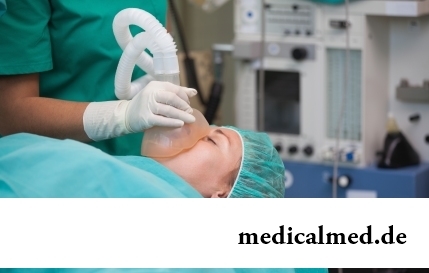
History of use of an anesthesia during operations contains more than 160 years. Annually in the world hundreds of thousands of surgical interventions during which to patients the substances immersing them in a dream and saving from pain are entered are carried out. Using an anesthesia many myths and delusions are still connected. It is worth getting acquainted with the most widespread of them....
Section: Articles about health
Practice of use of table salt in the therapeutic purposes contains not one century. Appl are considered especially effective...
Section: Articles about health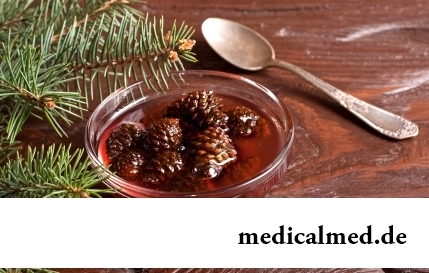
The pine is one of the most widespread plants of our woods. Its needles and pitch not without reason called by "gallipot" were since ancient times used for strengthening of protective forces of an organism, treatment of avitaminosis, anemia and many other diseases. In recent years wide п...
Section: Articles about health
Sooner or later hair turn gray at all. Many people try to hide these changes, returning natural color of the hair by means of coloring, or considerably changing it for the purpose of creation of absolutely new image. All know that the gray hair is a sign of the coming old age, so, it is necessary to get rid of it....
Section: Articles about health
Color of plants is caused by presence at them of certain chemical compounds. Let's talk that various colors mean vegetable...
Section: Articles about health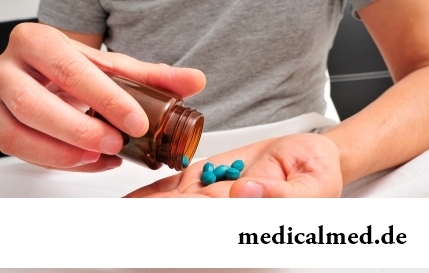
We present to yours the TOP of the medicamentous means exerting the stimulating impact on a potentiality, i.e. on ability of the man to commission of sexual intercourse. At once it is necessary to tell that not always disturbances of erectile function can be eliminated with reception of t...
Section: Articles about health
Any of us is not insured from a heavy illness of the loved one. Happens and so that someone from family members becomes the bed patient, and remains in such state for a long time. It extremely suppresses both the most injured, and all its house which life considerably changes....
Section: Articles about health
White teeth and the Hollywood smile – a dream of many people. Long time was considered that a plaque on teeth and change of their color – destiny of those...
Section: Articles about health
Producers of milk mixes for children assure: mixes are ideally balanced and adapted for needs of babies. If mother should raise artificially the kid owing to serious problems with health, to do nothing – m substitutes...
Section: Articles about health
What woman does not dream of a beautiful and thick hair? While physicians developed difficult schemes on hair transplant, in the industry of hairdresser's art a few years ago there was a sensation – methods of hair extension appeared. It would seem, dreams came true: though the procedure of building also does not belong to the category cheap, practically any woman can increase several times the volume of hair, change their length and color – generally, to become the real beauty queen....
Section: Articles about health
Smack in a mouth can arise in the natural way – as a result of lack of morning hygiene or reception of the corresponding food. Odn...
Section: Articles about health
Statistically cystitis 25-30% of women up to 40 years have. With age this indicator raises, besides many do not get to statistics because do not see a doctor. The most sad that after the regular visits to doctors, long reception of antibiotics...
Section: Articles about health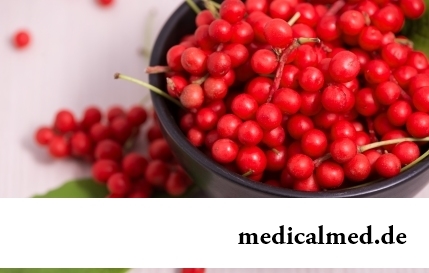
Statistically, pathologies of a thyroid gland in the world more than 500 million people have. Failures in work of this body lead to heavy disbolism, development of heart diseases, vessels, a reproductive and nervous system. In hard cases excess or insufficient production of the main hormones of a thyroid gland (thyroxine and triiodothyronine) leads to essential decline in quality of life and disability....
Section: Articles about health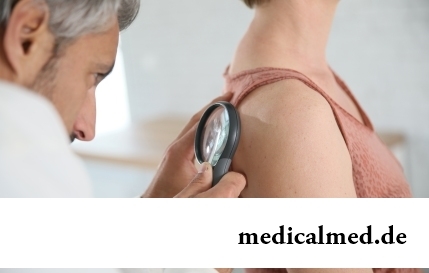
Scientists have no unambiguous opinion on a proximate cause of emergence of a carcinoma cutaneum today. Are precisely established only фа...
Section: Articles about health
Osteoporosis this general disease which main sign is decrease in density of a bone tissue. On distribution width it takes the fourth place among noninfectious diseases. The illness develops at mature age more often: in our country to them harvest seasons...
Section: Articles about health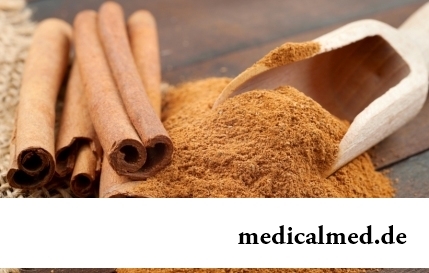
Ayurveda - the most ancient tselitelsky practice which came to us from India. It represents the doctrine about maintenance of physical, psychological and moral health of the person by means of the complex of procedures including a diet, cleaning of an organism, breathing exercises, massage, and in case of a disease - and medicinal therapy. The healers practicing Ayurveda assign very important part to spices, and at the heart of Ayurvedic drugs, as a rule, there are they. It is considered that spices not of t...
Section: Articles about health
Dark circles (bruises) under eyes – a shortcoming with most of which often fight against the help of cosmetics (proofreaders, salons...
Section: Articles about health
Helminthosis is one of the most widespread diseases. Statistically, any species of helminths infected every third inhabitant of the planet. Most of specialists even consider these data strongly underestimated: some uninvited "cohabitants" of N...
Section: Articles about health
Water with a lemon - idle time in preparation drink which supporters of a healthy lifestyle already managed to appreciate. Used in a warm look and on an empty stomach, it is one of the most useful prophylactics allowing to prevent tens of diseases and just to raise an organism tone. Especially effectively to use warm water with lemon juice after a serious illness, during a season of the colds, and also to children, old men and pregnant women which do not have contraindications...
Section: Articles about health
The number of long-livers is very small. One person from 5 thousand lives up to age of 90 years, and the centenary boundary steps only about...
Section: Articles about health
Musicotherapy – a treatment method which caused and causes a set of a controversy concerning its efficiency. However the facts are relentless: during the numerous researches curative impact of music on an organism was scientifically confirmed. Since then in a number of the countries a method...
Section: Articles about health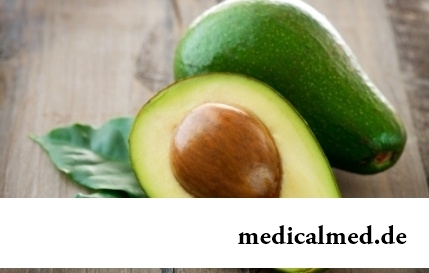
Life does not indulge the modern woman special emotional comfort and carelessness. The fatigue, troubles at work, misunderstanding in a family and various illnesses immediately affect a condition of hair and skin. And there is a wish to look safe and attractive so! Substantially competently picked up diet can improve situation....
Section: Articles about health

